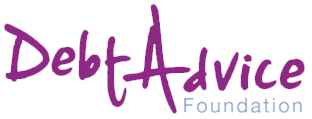Could your family survive an “income shock”?
The unexpected has happened: Coping with a reduced income
There is no typical person who is most likely to get into financial difficulty. It can literally happen to anyone, at any time.
The unexpected has happened: Coping with a reduced income
There is no typical person who is most likely to get into financial difficulty. It can literally happen to anyone, at any time.
So what sort of thing counts as an income shock? Pretty much anything which radically lowers income, such as maternity leave, going part-time or having your hours reduced, becoming a SAHM, the end of a relationship, severe illness or job loss.
Those affected by an income shock usually have existing credit commitments at a level they can manage, but there isn’t a buffer of savings for any surprises.
Here are some of our top tips to surviving an “income shock”:
- Take a look at your bank statements for the last few months, or access your banks mobile app. Create a list of all your regular payments, then create a list of one offs.
- How many of these things on that list do you reckon you could do without? Some of the easiest things to scrap are paid subscriptions and TV services. Cancel everything you don’t really need, and you can always restart them when the situation improves. Cancel bingo or betting accounts.
- If you own your home, speak to your mortgage lender, as they may give you a mortgage payment “rest”. If you’re current account is often in the negative, make an appointment to talk to your bank about changing your overdraft into an agreed one, as overdraft charges can be astronomical.
- Brand loyalty doesn’t reward like it used to, so use a comparison site or go online to find deals for things like mobiles, electricity, internet and insurances. You will be amazed how much you can save by switching.
- If you are paying a high interest rate on a credit card, switching to one with 0% balance transfers may ease the pressure for a while, but remember there's a lump sum fee for the transfer and that the interest will be high when the offer ends. Consolidating debts by getting a personal loan with a low interest rate may be a better solution, reducing both the monthly cost and the overall repayment amount.
- Check your benefit entitlement. Any new circumstances may mean you are eligible for things you weren’t before, such as single parents being able to receive tax credits or free school meals. Visit https://www.gov.uk/benefits-calculators to find out where you stand.
- Don't forget about the food (and wine) weekly shop. Supermarket deals can be overwhelming. Make a food list for the week ahead and shop online to reduce the risk of an impulse buy or four. Include lunches and some weekend treats, as we're all guilty of spending a fortune on takeaways and pre-made sandwiches.
- Finally, your secret talent or passion could generate some income. Small eBay and Etsy businesses are easily set up, and may lead to a whole new career.
So you've looked at the black and white aspects of an income shock, but what else is there?
Talking about debt still seems like the last taboo. Trying to hide difficulties increases stress. Confide in your friends, family and partner about the situation and the need for you to stick to a budget, you might be surprised at who else is in the same boat.
Avoid the temptation to overcompensate for upsetting circumstances like illness or divorce by spending on expensive treats. Older children may be upset at the new budget, but they are likely to be understanding if they can see the bigger picture.
Take care of your mental health. Debt can cause problems such as depression, which can in turn cause us to make bad financial decisions. If you’re feeling down or have a history of a mental illness, make sure to keep in touch with your GP or healthcare team. You can also take a look at TheMoneySavingExpert guide to debt and mental health.
Our helpline advisers are available to discuss in confidence any aspect of debt. The freephone helpline is open Monday to Friday 8am to 6pm. Call on

Helpline Callback
If you’re unable to call our free debt helpline number 0800 043 40 50 right now, you can fill in the form below and one of our advisors will call you back at a time of your choosing.



